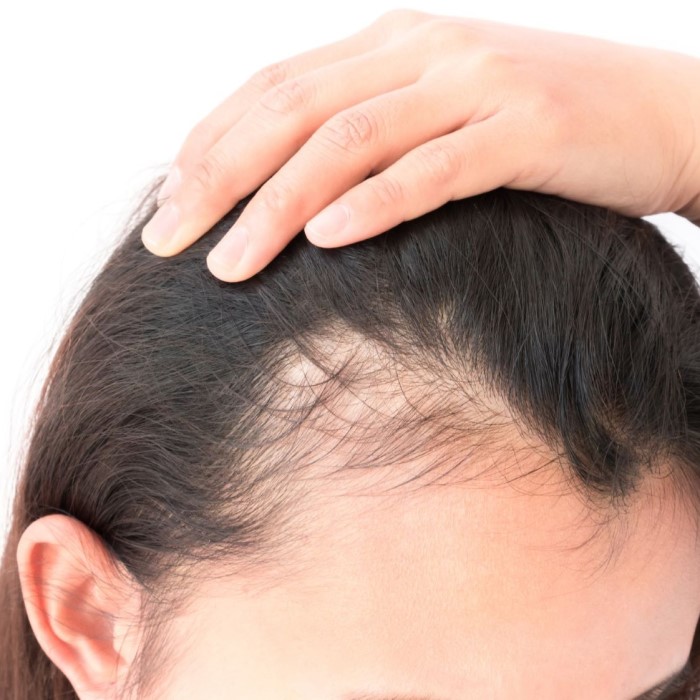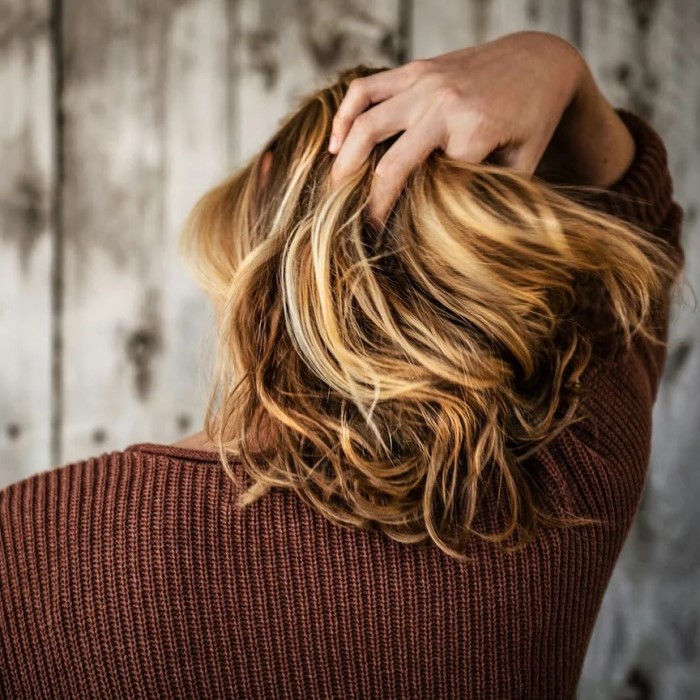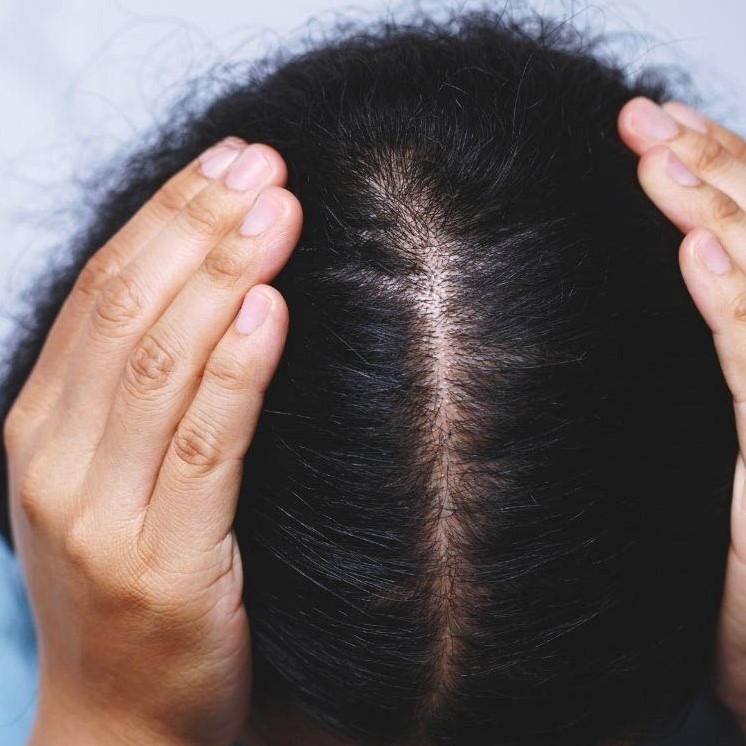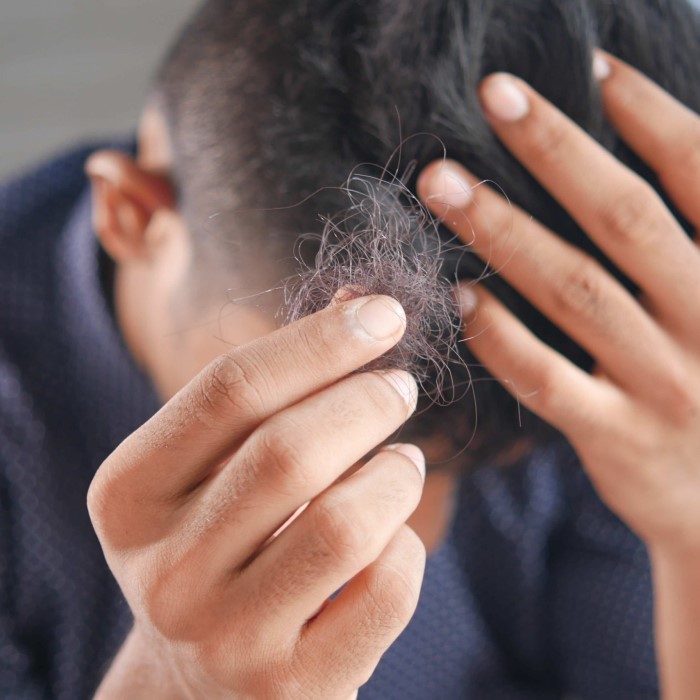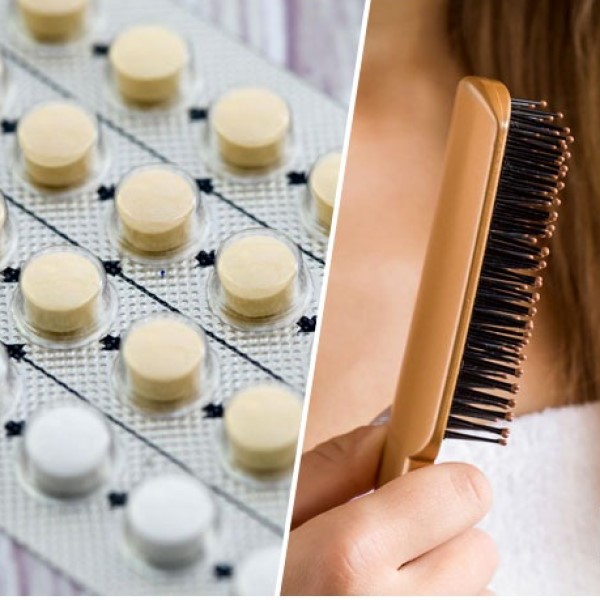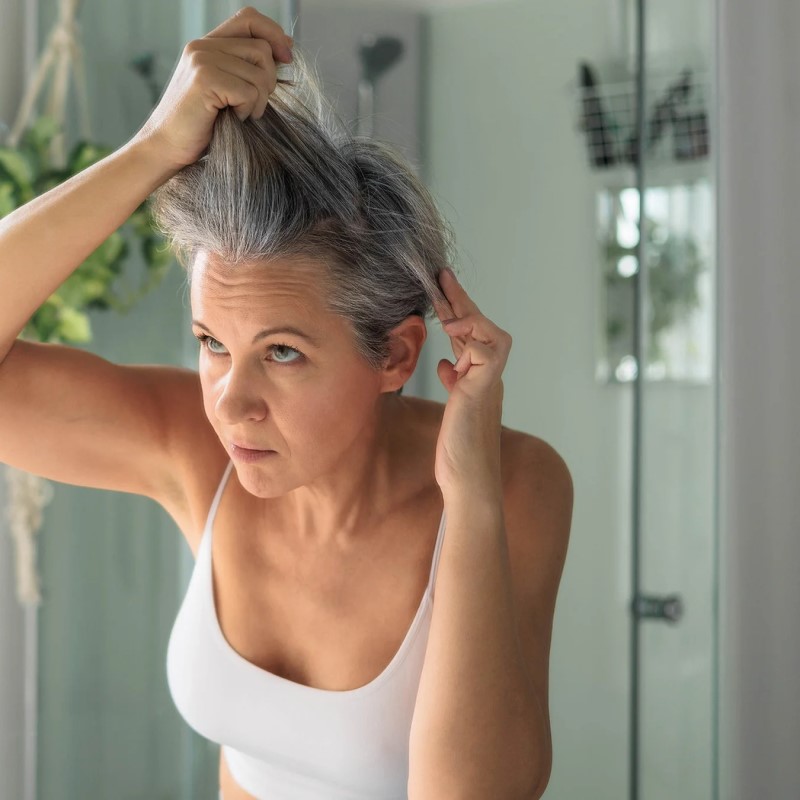
Does Menopause Cause Hair Loss? Signs, Myths, and Realities
Understanding Menopause and Its Effects on Hair
Menopause is a significant biological transition in a woman’s life, typically occurring between the ages of 45 and 55. This natural phase marks the end of menstrual cycles and fertility, accompanied by various hormonal changes. The most notable shifts are decreases in estrogen and progesterone, which play pivotal roles in various body functions. One major concern among women experiencing menopause is does menopause cause hair loss? The short answer is yes; hormonal changes during this time can significantly impact hair health.
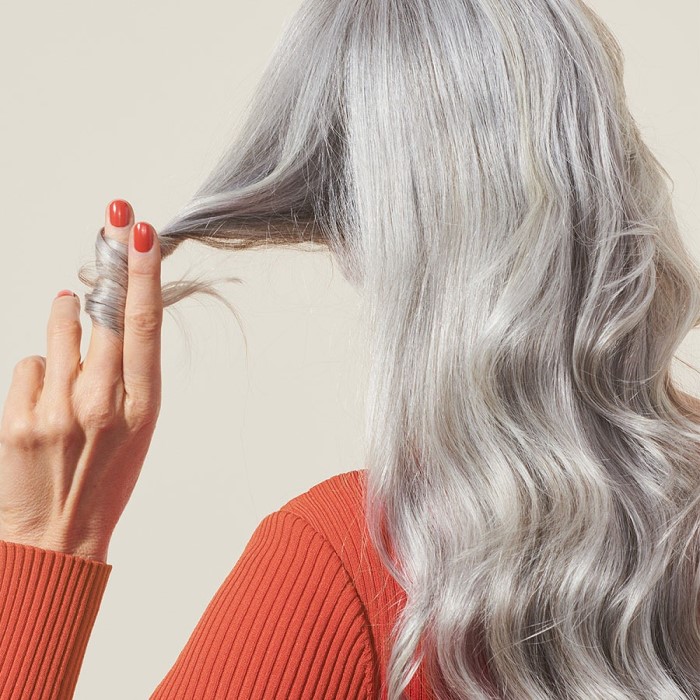
The relationship between menopause and hair loss stems primarily from hormonal imbalances. Estrogen, a key hormone in women’s bodies, supports the hair growth cycle by promoting the health of hair follicles. When estrogen levels drop, this cycle can be disrupted, leading to thinning hair or shedding. By understanding these changes, women can better navigate the challenges of hair loss during menopause.
Signs of Hair Loss During Menopause
Recognizing the signs of hair loss during menopause can often be distressing, but awareness is the first step in addressing it. Here are some key indicators:
- Increased Shedding: One of the most noticeable signs is a sudden increase in hair shedding. You may find more strands on your pillow, in your hairbrush, or in the shower drain.
- Thinning Hair: Many women report their hair feeling thinner or less voluminous. It may become more challenging to style, as hair lacks its usual body.
- Change in Hair Texture: During menopause, hair may become coarser and drier due to hormonal changes. This can contribute to brittleness and breakage.
- Scalp Visibility: If you notice more of your scalp than before, such as seeing through your hair, it can indicate that your hair is thinning.
Being aware of these signs helps women identify hair loss early. The sooner they can recognize these changes, the faster they can seek remedies or consult healthcare professionals.
Myths About Menopause and Hair Loss
Does menopause cause hair loss? Understanding the myths surrounding menopause and hair loss is vital in dispelling fears and misconceptions. Here are a few common myths:
- Myth 1: Hair Loss is Inevitable for Everyone: While it’s true that many women experience hair loss during menopause, it does not happen to every woman. Genetics, lifestyle choices, and overall health play significant roles.
- Myth 2: Only Hormones Cause Hair Loss: Although hormonal fluctuations significantly impact hair health, other factors such as diet, stress, and underlying health conditions also contribute.
- Myth 3: Menopause Hair Loss Cannot Be Treated: There are numerous treatment options available for hair loss during menopause, including topical solutions, medications, and supplements.
By understanding the realities behind these myths, women can take informed actions regarding their health rather than succumbing to misinformation.
Realities of Menopause-Induced Hair Loss
Does menopause cause hair loss? The reality is that while menopause can lead to hair loss, there are strategies and treatments that can help mitigate its effects. Many women experience varying degrees of hair thinning, which can lead to feelings of frustration and embarrassment. However, it is essential to remember that these changes are a natural part of aging and hormonal cycling.
Hormone replacement therapy (HRT) is one option many women consider to alleviate menopausal symptoms, including hair loss. HRT aims to restore hormone levels and can alleviate other symptoms like hot flashes and mood swings. However, it is crucial to discuss individual options with a healthcare provider, as the risks and benefits of HRT can vary among individuals.
Solutions and Treatments for Hair Loss
If you are struggling with hair loss during menopause, it’s essential to explore various treatment options. Here are several effective approaches to consider:
Nutritional Support
- Balanced Diet: A well-rounded diet plays a crucial role in maintaining optimal hair health. It should be high in essential vitamins and minerals.
- Key Nutrients:
- Biotin: Often referred to as the “hair vitamin,” biotin is vital for promoting stronger, healthier hair. It supports the keratin structure of hair.
- Zinc: This mineral helps with tissue growth and repair, making it important for preventing hair loss and promoting regeneration.
- Iron: Adequate iron levels are necessary to support oxygen transport in the blood, which is crucial for healthy hair follicles and overall hair growth.
Scalp Care
- Scalp Massages: Regularly massaging the scalp can enhance blood flow to hair follicles, which may stimulate hair growth and improve hair thickness.
- Gentle Cleansing Products: Using mild, hydrating shampoos and conditioners helps maintain the scalp’s moisture balance and prevents irritation, contributing to better hair health.
Topical Treatments
- Minoxidil: This FDA-approved treatment is particularly effective for women facing thinning hair. Its regular application can lead to noticeable improvements in hair density and growth.
- Consultation: Before starting any new topical treatment, it’s vital to consult with a healthcare provider to receive personalized advice and ensure safety based on individual health conditions.
Stress Management
- Impact of Stress: High levels of stress can adversely affect hair health, potentially leading to increased hair loss.
- Relaxation Techniques: Engaging in activities such as yoga, meditation, and deep-breathing exercises can help mitigate stress levels and promote overall mental well-being, which in turn can benefit hair health.
Hormone Therapy
- Menopausal Symptoms: For many women experiencing menopause, hormone replacement therapy (HRT) may alleviate symptoms, including hair loss.
- Hormonal Balance: HRT can assist in restoring hormonal balance in the body, which is essential for stabilizing various bodily functions, including hair growth.
- Professional Guidance: Women should have thorough discussions with their healthcare provider about the potential benefits and side effects of hormone therapy before starting.
Supplements
- Variety of Options: Numerous supplements are available that claim to support hair growth, typically containing a mix of vitamins, minerals, and herbal ingredients.
- Safety and Efficacy: It is crucial to consult with a healthcare professional to determine which supplements are safe and effective for individual needs and to avoid potential adverse interactions with other medications or health conditions.
The Benefits of Menopause
While menopause certainly presents challenges, it’s essential to acknowledge the positive aspects as well. Many women experience newfound freedom and empowerment during this life phase. Here are some benefits:
Increased Confidence
- New Sense of Self-Assurance: After menopause, many women report feeling a newfound confidence in themselves. The end of menstrual cycles can lead to a greater acceptance of their bodies.
- Freedom from Pregnancy Concerns: With the risk of pregnancy no longer a concern, women often embrace their bodies and explore what it means to be fully in control of their own lives and choices.
- Enhanced Independence: Many women find that they can take more risks and explore new opportunities, enjoying a sense of freedom and autonomy that may have been constrained during their reproductive years.
Freedom from PMS
- Liberation from Symptoms: The cessation of premenstrual syndrome (PMS) symptoms marks a significant relief for many. Women no longer have to deal with physical discomforts such as bloating and cramps.
- Emotional Stability: Mood swings associated with PMS often vanish with menopause, leading to greater emotional stability and a more balanced mood, which can positively impact relationships and professional life.
- Improved Daily Quality of Life: The absence of these cyclical symptoms can greatly enhance overall daily life quality, allowing women to engage more fully in their personal and professional pursuits without the interruptions that PMS can cause.
Personal Growth
- Life Transitions: Menopause often coincides with other significant life events, such as retirement or children leaving home, creating a unique period for transformation.
- Opportunities for New Hobbies: Many women take this time to explore new interests, hobbies, or activities they may have set aside, fostering a sense of accomplishment and joy.
- Focus on Self-Care: With fewer responsibilities tied to family and work, this period allows women to prioritize self-care, wellness, and personal development, leading to enriching and fulfilling new experiences.
Recognizing the benefits of menopause can help women shift their focus from challenges to opportunities for personal development and satisfaction.
FAQs
What vitamin is good for hair loss?
Biotin is one of the most recognized vitamins that support hair health, often included in hair growth supplements due to its benefits in promoting hair strength.
What is hormone therapy for menopause?
Hormone therapy, or hormone replacement therapy (HRT), involves supplementing estrogen and progesterone to relieve menopausal symptoms and potentially support hair retention.
What are the benefits of menopause?
Menopause brings several advantages, such as increased self-confidence, freedom from menstrual discomfort, and opportunities for personal growth, leading to a fulfilling life stage.
This article aims to provide an informative perspective on menopause and hair loss, addressing common concerns and viable solutions. By understanding what to expect during this phase, women can take empowered steps toward managing their hair health effectively, making menopause a time of renewal rather than distress.
Conclusion
In conclusion, understanding does menopause cause hair loss is crucial for women experiencing this life stage. While menopause can bring about hair loss due to hormonal changes, recognizing the signs and seeking appropriate treatment options can empower women. By addressing common myths and embracing effective strategies, women can navigate this transition with confidence. Focusing on overall health, nutrition, and available treatments will help mitigate the effects of hair loss and promote well-being.
As women enter this new phase of life, it’s vital to remember that hair loss is just one aspect of menopausal changes. Open discussions with healthcare professionals, along with support from friends and family, can make a significant difference. Women should strive to embrace the changes that come with menopause, understanding that they can take proactive steps to manage their hair health effectively.
